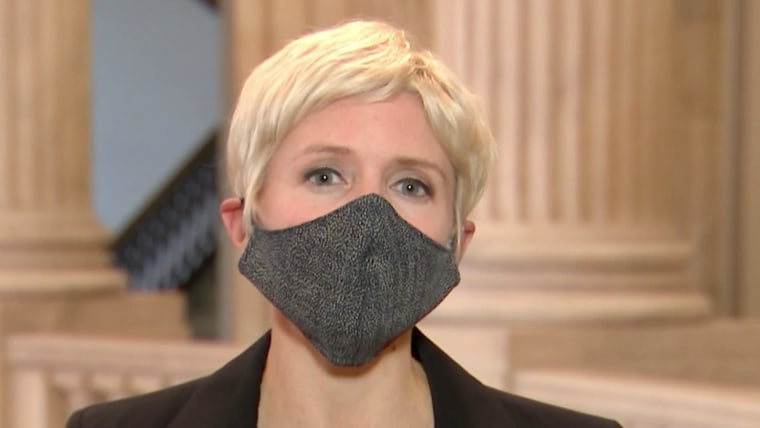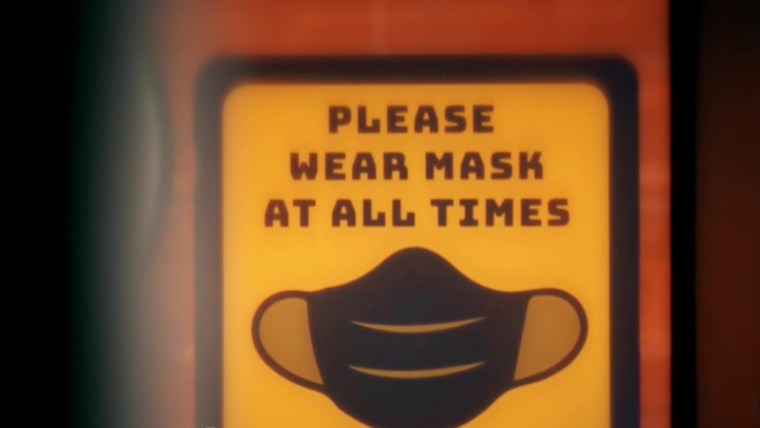In late June, Sharps Compliance, a Houston-based medical waste management company, reported spectacular financial results. The rollout of Covid-19 vaccines had increased demand for the company’s services, Sharps said, and its earnings had more than quadrupled. The company’s board granted Sharps’ top three executives twice the compensation they’d received a year earlier based on the performance; the trio shared almost $1 million more than they’d received in fiscal 2020, Securities and Exchange Commission filings show.
As publicly traded Sharps booked the enviable results, it also made a request of the federal government. Last year, the company had tapped taxpayers through a lender for a $2.2 million loan under the Paycheck Protection Program, or PPP, a relief operation for small businesses experiencing economic hardship due to coronavirus measures. A year later, Sharps wanted that loan forgiven.
On June 15, Sharps got its wish, regulatory filings show.
In the early, terrifying days of the pandemic, the federal government raced to support businesses and consumers undone by Covid shutdowns. A signature effort was the Paycheck Protection Program, a forgivable loan operation for small businesses. Overseen by the Small Business Administration, or SBA, it disbursed almost $800 billion in total from April 2020 to May 2021, when it ended.
Now, many PPP borrowers, like Sharps, are asking that their loans be forgiven. And as of Nov. 7, about $610 billion in forgiveness had been granted, data show.
For small businesses, PPP was “the lifeline they needed to survive during a once-in-generation economic crisis,” SBA Administrator Isabella Casillas Guzman said.
But an investigation by NBC News shows that the operations of some companies receiving loan forgiveness, like Sharps, seemed to thrive during Covid, rather than be hurt by it. And while those companies could not have predicted their standout results when they applied for PPP loans, their requests for loan forgiveness came well after the gains were evident.
Under the program, PPP loans can be forgiven if recipients maintain employee and compensation levels where they were before Covid and if at least 60 percent of the loan proceeds are spent on payroll costs and the rest on other eligible expenses, such as rent or utility payments.
There is no evidence that Sharps and the other companies identified by NBC News broke any laws or secured their loan forgiveness improperly.
A record year
When the government launched the PPP, few rules were in place; the idea was to get money to businesses fast. The government made it clear at the time that borrowers would be entitled to forgiveness if they met certain requirements.
Initially, borrowers did have to certify “in good faith” that the funding was necessary when they applied for loans, taking into account “their current business activity” and their ability to access other sources of capital to support their operations, such as the stock market or deep-pocketed investors.
“It is unlikely that a public company with substantial market value and access to capital markets will be able to make the required certification in good faith,” the SBA said.
Nevertheless, some companies whose loans over $1 million have been forgiven had access to stock market funding both when they took the taxpayer money and when they received forgiveness, NBC News found. In the early days of the pandemic, the stock market was cratering, but since then, it has repeatedly hit new highs.
Some 157 companies with access to the stock market got about $300 million worth of the $610 billion that had been forgiven as of mid-October, or less than 0.1 percent of the total. For example, Sharps’ stock market value was about $100 million when it got the PPP loan, and shortly after it was forgiven, the company raised $17 million by issuing new shares, regulatory records show.
In addition, NBC News determined, more than $120 million in loan forgiveness has gone to companies recording higher revenues and earnings during Covid than before it.
Sharps could not have been clearer about the pandemic’s impact. In its annual report to shareholders, published two months after its loan was forgiven, it said, “To date, the company has not identified any material adverse impact of COVID-19 on its financial position and results of operations.”
Nell Minow is a corporate governance expert and vice chairman of ValueEdge Advisors, an advisory firm to institutional investors. She is critical of companies that took taxpayer money when, she said, they did not need it and of company directors who awarded higher CEO pay while receiving federal loan forgiveness.
“Once again, corporate directors and CEOs are the real welfare queens, exploiting loopholes of sloppily drafted emergency legislation,” Minow said. “This is an outrage.”
NBC News asked Sharps to respond to the criticism and to address why it had requested forgiveness of the loan from taxpayers during such a prosperous year. A Sharps spokesman declined to address the issues but said the company had met the SBA’s criteria for loan forgiveness.
“Sharps is a relatively small company and the dedicated employees mobilized in a time of great uncertainty and risk, to play a vital role in the safe collection and disposal of COVID-19 related medical waste,” the spokesman said. “This loan played an important role in enabling Sharps to confidently execute against this plan, protect employees and help customers as they contended with the pandemic.”
In a regulatory filing, Sharps said it must keep records of its $2.2 million loan for six years in case the SBA decides to audit the company’s eligibility for the loan. “To the extent the eligibility is challenged, the company may have to repay all or part of the PPP Loan,” the filing said.
Acme United, a maker of sharpening tools and first-aid kits, is another example. The company, based in Shelton, Connecticut, tapped the taxpayers for a $3.5 million PPP loan in May 2020 and received forgiveness for it in June of this year.
For the nine months that ended Sept. 30, Acme earned 87 percent more than it did in the same period last year, its filings show. And for 2020, the company recorded that revenues were up by 15 percent, while earnings advanced by 47 percent.
Its three top executives shared an additional $1.1 million in total compensation last year, a 43 percent increase over 2019.
In awarding the pay, Acme United’s board cited the company’s milestones and achievements, including a big increase in e-commerce sales and a $9.3 million acquisition of a Florida-based manufacturer of antiseptic prep pads and towelettes. The company “has been able to continue to meet the needs of its customers in 2020 without interruption,” it said.
Walter Johnsen, the chairman and CEO of Acme United, said in a phone call that the company was fortunate in being able to pivot to internet sales during the pandemic. The company “worked very carefully with the SBA, responding truthfully to numerous requests,” he said. “We met all their requirements and answered as fully and honestly as we could, and they concluded that the loan would be forgiven.”
A third public company that received loan forgiveness amid a stellar performance is Enzo Biochem, a New York City-based clinical lab and diagnostics company. It received a $7 million PPP loan last year, which was forgiven in June, regulatory records show. The SBA granted the forgiveness as Enzo was experiencing a record year, generating a 55 percent increase in sales.
Fueling Enzo’s fiscal 2021 results, the company said, were its Covid testing products, for which it received emergency use authorizations and extensions from the Food and Drug Administration. Enzo recorded earnings of almost $8 million for the year, up from a loss of $28.5 million in fiscal 2020.
It was “a validating and extraordinary year for Enzo,” said Barry Weiner, the company’s president. Enzo will disclose its executive pay figures for 2021 this month.
Along with other companies in the health care arena, Enzo got an array of government assistance during the pandemic. Asked about receiving loan forgiveness from taxpayers during its banner year, an Enzo spokeswoman said, “Our PPP loan performed exactly the service it was meant to provide — a lifeline to avoid having to let people go and potential shut down divisions of our company — and we met all criteria to be eligible for loan forgiveness.”
Like Sharps and Acme United, Enzo had access to stock market funding for its operations during the pandemic; its market value at the time it got the loan was $108 million. It is now $170 million.
Source: | This article originally belongs to Nbcnews.com











